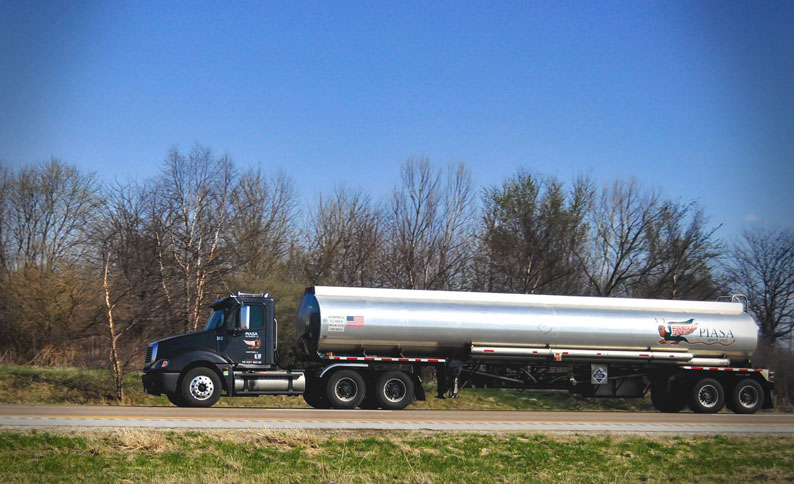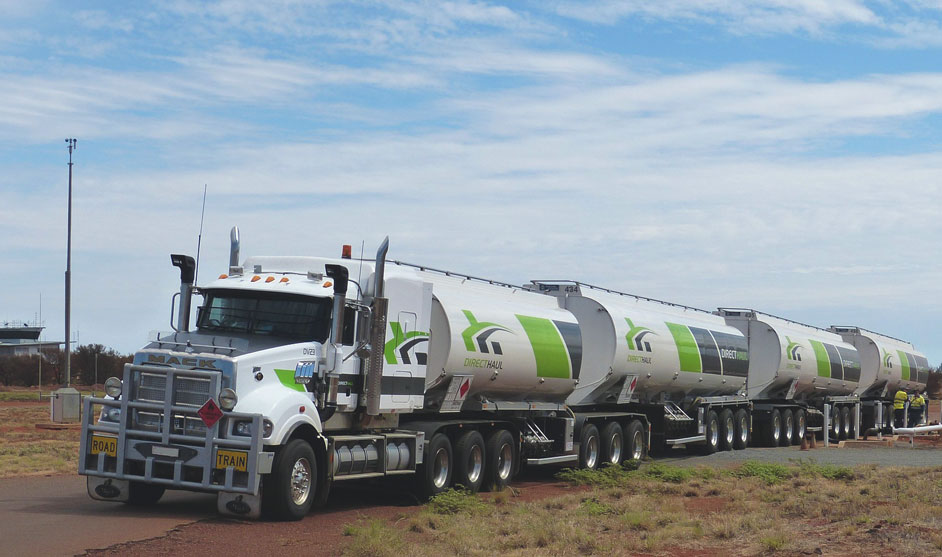I Was Injured by Hazardous Cargo in a Semi Truck Accident. What Are My Options?
Indiana car accidents are bad enough. An accident between a car and a semi truck is usually even worse. Due to the sheer size and weight of semi trucks, whoever is in the car during the accident typically suffers far worse injuries than the truck driver. But a semi truck accident involving a truck carrying […]

September 27, 2017

Indiana car accidents are bad enough. An accident between a car and a semi truck is usually even worse. Due to the sheer size and weight of semi trucks, whoever is in the car during the accident typically suffers far worse injuries than the truck driver.
But a semi truck accident involving a truck carrying hazardous cargo creates an even more dangerous situation.
Regulations for Semi Trucks

Before taking into account the hazardous cargo they’re transporting, truck drivers and trucking companies must make sure that they’re following the regulations in place for all semi trucks.
The Federal Motor Carrier Safety Administration (FMCSA) is responsible for issuing regulations regarding commercial truck transportation. Their rules affect who can operate a commercial vehicle as well as the type of insurance policy that must be carried for bodily injury and property damage.
FMCSA also is responsible for the Hours of Service regulations that restrict the number of hours truck drivers can spend on the road before they’re required to rest. According to the National Highway Traffic Safety Administration (NHTSA), drowsy driving is so serious that it “mimics alcohol-impaired driving in many ways.” The Hours of Service regulations exist to combat drowsy driving and make it safer for everyone to be on the road.
If you’ve been injured in a semi truck accident, you should determine whether or not the standard regulations for semi trucks were followed, regardless of whether or not the truck was carrying hazardous materials. Remember that semi truck drivers must also obey the laws that affect all drivers of motor vehicles, such as laws that prohibit texting while driving, speeding, or driving while intoxicated.
Regulations for Semi Trucks Transporting Hazardous Cargo

As well as meeting the regulations applicable to all semi trucks, semi trucks transporting hazardous cargo have to follow more rules to ensure the safety of everyone on the road.
For example, in Indiana, semi trucks transporting hazardous cargo cannot use Interstate 70 or Interstate 65 within the I-465 beltway. They’re only allowed to drive on I-465, bypassing Indianapolis altogether.
Semi trucks transporting hazardous cargo must also have labels and markings identifying their cargo as hazardous. These placards must include specific information about the contents of the cargo depending on what class the cargo is in. The 10 classes used by the U.S. Department of Transportation include:
- Class 1: Explosives
- Class 2: Gases
- Class 3: Flammable Liquid and Combustible Liquid
- Class 4: Flammable Solid, Spontaneously Combustible, and Dangerous When Wet
- Class 5: Oxidizer and Organic Peroxide
- Class 6: Poison (Toxic) and Poison Inhalation Hazard
- Class 7: Radioactive
- Class 8: Corrosive
- Class 9: Miscellaneous
- Dangerous
Depending on the type of hazardous cargo, there may be additional rules for how the cargo is handled or shipped.
Where You Can Recover

In a typical car accident, you can only seek recovery from your own insurance company or the insurance company of the at-fault driver. But in a semi truck accident, you have more options.
More people are responsible for the safety of a semi truck than for a typical passenger vehicle. In the event of a semi truck accident, you may be able to hold the following parties responsible:
- The truck driver
- The trucking company
- The truck manufacturer
- The company that loaded the truck
- The company that maintains the truck
If you’re injured by hazardous materials that the semi truck was transporting, you may also be able to hold the company that manufactured the cargo responsible.
How do you determine who is responsible? It depends on your specific case. If, for example, the cargo wasn’t properly labeled as hazardous, you may be able to hold the company that loaded the truck responsible as well as the trucking company and the company that manufactures the cargo, depending on how many people knew the label was missing and neglected to fix the problem.
Help from an Indiana Truck Accident Attorney
When it comes to semi truck accidents, there are a lot of different parties involved, and your injuries are likely to be severe. With hazardous cargo, the situation is typically even worse. It’s difficult to determine who should be held responsible for your injuries.
That’s where an experienced Indiana truck accident lawyer can help. Call Hensley Legal Group today or contact us online for a free case review.
Available 24/7
Free Case Review
You won’t pay any fees until we win your case.
It’s easy - you can: